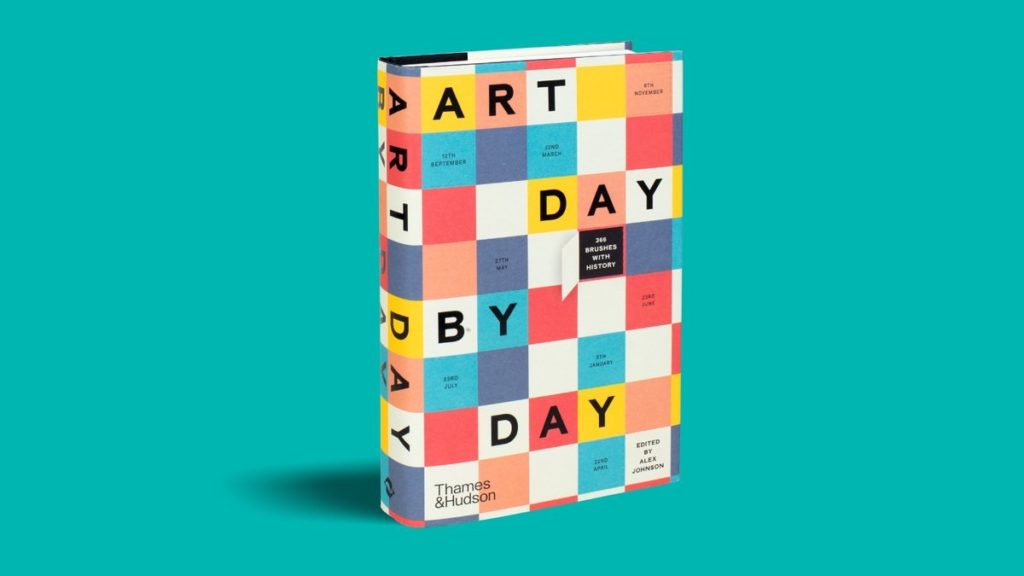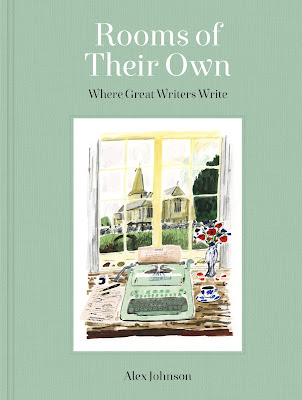
LOOKING for a cultural book to read one day at a time in 2022? Look no further than Art Day By Day, 366 Brushes With History, edited by Alex Johnson, freelance journalist, writer, design and lifestyle blogger and half-decent snooker player, formerly of this parish.
Published by Thames & Hudson, Alex’s daily almanac presents a selection of historical art events for every day of the year, from the momentous and headline-grabbing to the intimate, amusing, and illuminating; from Donatello to Dennis the Menace, Fabergé to Ferris Bueller’s Day Off, Spain to Senegal.
As Alex puts it, by taking a novel approach to the history of art, Art Day By Day “aims to change the pace at which the story is told”. Hence CharlesHutchPress’s advice to browse it in daily instalments.
Educated in York at Bootham School and trained in print journalism at the Yorkshire Evening Press, as it then was, this polymath of the written form contributes regularly to the Independent, Fine Books magazine and The Idler (on snooker, sheds and microarchitecture) from his St Albans home.
He runs the blogs Bookshelf (on creative bookcase designs) and Shedworking (a term he coined about garden offices) and has now added to that list his sites on tiny houses and “pubworking” (whose day is yet to come, he says). Oh, and he co-created the two The Writers Game games, Classic Authors and Modern Authors, with Laurence King.
Already he has written and edited such books as Bookshelf, Improbable Libraries, A Book Of Book Lists, Book Towns, Shelf Life, The Haynes Shed Manual, Edward Lear And The Pussycat (The Adventures Of Famous Writers And Their Pets), Menus That Made History, How To Give Your Child A Lifelong Love Of Reading and A Soundtrack For Life (Classical Music To Take You Through The Day) for Scala Radio.
Now he has edited Art Day By Day, “snapshots of the most exciting, unusual and noteworthy art events from around the world and throughout history, told through direct testimonies, eyewitness accounts and contemporary chroniclers”.
“I’ve always been interested in dates and almanacs,” says Alex, who studied Modern History at The Queen’s College, Oxford. “I’d done a couple of books with Thames & Hudson before, so they were perfect for this one.

“Lockdown was a good time to be able to sit down and research it, and like my other books, it’s a book about something I’d like to read about.
“I did lots of arts modules at university as part of my history studies, from Anglo-Saxon art to Renaissance art. Most Oxford History degrees weren’t very flexible but by chance they had several good art modules.”
How did Alex select the subject matter for each day? “There were some things I knew I wanted to write about and some things that jumped out as I looked through the dates; or going through letters and thinking, ‘I want to do something on that’,” he says.
“I wanted it to be as broad as possible, taking in film, comic strips, photography, architecture, even album covers, as well as those things you might expect, like Michelangelo’s Sistine Chapel ceiling and Edvard Munch’s The Scream being stolen, because I didn’t want it to be too highbrow.
“At first it was a case of narrowing it down for each day, then getting down to the last few dates and thinking, ‘nothing happened on that day’, but I was determined to try to avoid too much ‘this or that artist was born or died on this day’, which I thought I could just put at the bottom.”
Comedian Tony Hancock is among the eye-catching entries, for the London premiere of his first leading film role in The Rebel on March 2 1961. “I’ve always been a big Hancock fan, and that was one of the ones I wanted to shoe in, where he played an appalling, childish, inept artist in Paris,” says Alex.
He likes the thought that going down “interesting rabbit holes” could lead readers to other places. “I really hope that they will have the same feeling as I did when they read about the first Fabergé egg and then want to read something far more interesting than those 400 words that will lead them somewhere else,” he says. “Likewise, by reading condensed versions of some of Van Gogh’s letters, I hope they will seek out more of his letters.”
Artwork – save for the cover design – does not feature in the book. “It’s a shame, but it would have made the book even bigger than its 464 pages, but it’s not like the art is hidden away. If I can find it, then other people can!” urges Alex.

Summing up his philosophy behind Art Dy By Day, he says: “Art is all around us, whether a Woodstock festival poster, a Superman comic or Dennis the Menace’s 1951 debut in The Beano, so that’s why it’s art in the broadest sense, and in many ways, the book is not about art but creative production.
“It would be easy just do something that just features the Great Masters, but there’s no point in doing that, just repeating what we already know, with nothing new added, but this book pinpoints moments of inspiration, when something happened, rather than highlighting great trends.
“It’s about the human side of it all, as things happen to people doing their job, rather than just sitting and pondering!”
Alex has two more books in the pipeline. First up is Rooms Of Their Own: Where Great Writers Write, whether beds, sheds, cafés bathrooms, basements or libraries, published by Frances Lincoln (Quarto) in April with illustrations by James Oses.
The second will be one of Alex’s list books, this one for the British Library, The Book Of Book Jokes, coming out in June. “The trouble with a joke is that you look at it and think, ‘is that still funny?’!” he says. “Some of them are appallingly corny, some are highfalutin. Some are in French or German.”
In the meantime, this is the day when you should buy Alex Johnson’s Art Day By Day. After all, it was included in the arts section of Guardian Bookshop Christmas gift guide.
What features on the Leap Year day of February 29 in Art Day By Day? Sculptor Augusta Savage is born, 1892.
Alex Johnson’s Twitter profile at @shedworking: Writer. Books (art, sheds, food, music, bookish subjects). Columns (@finebooks + @idler). All sorts (@Independent since 2007). Coined term ‘shedworking’.
Where does Alex write and edit? “I used to work from a shed but now removed temporarily to the cellar.”
